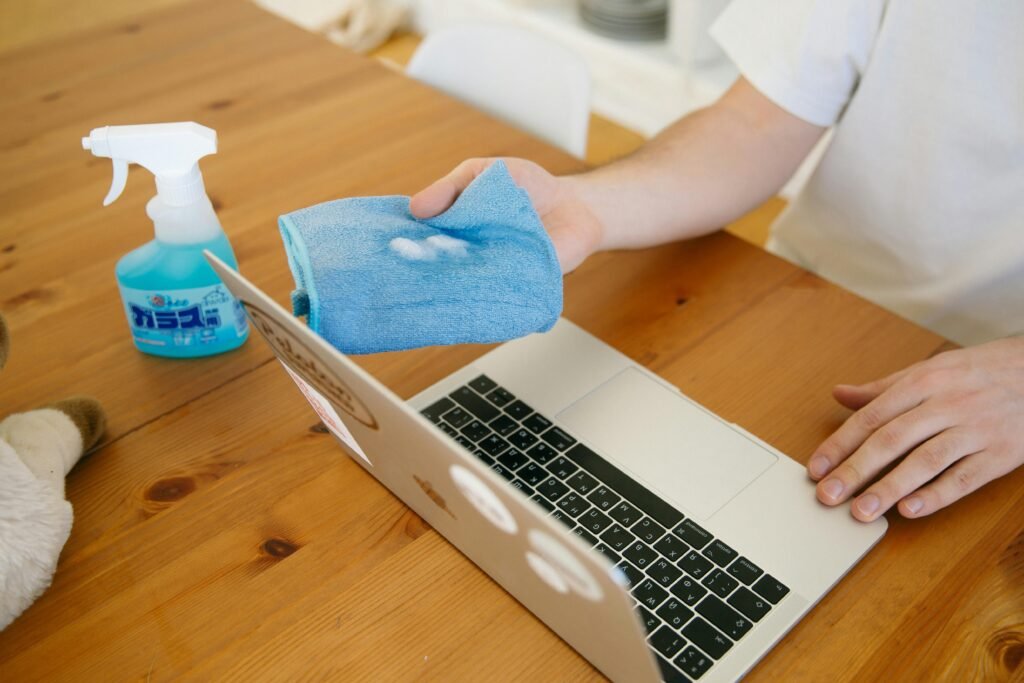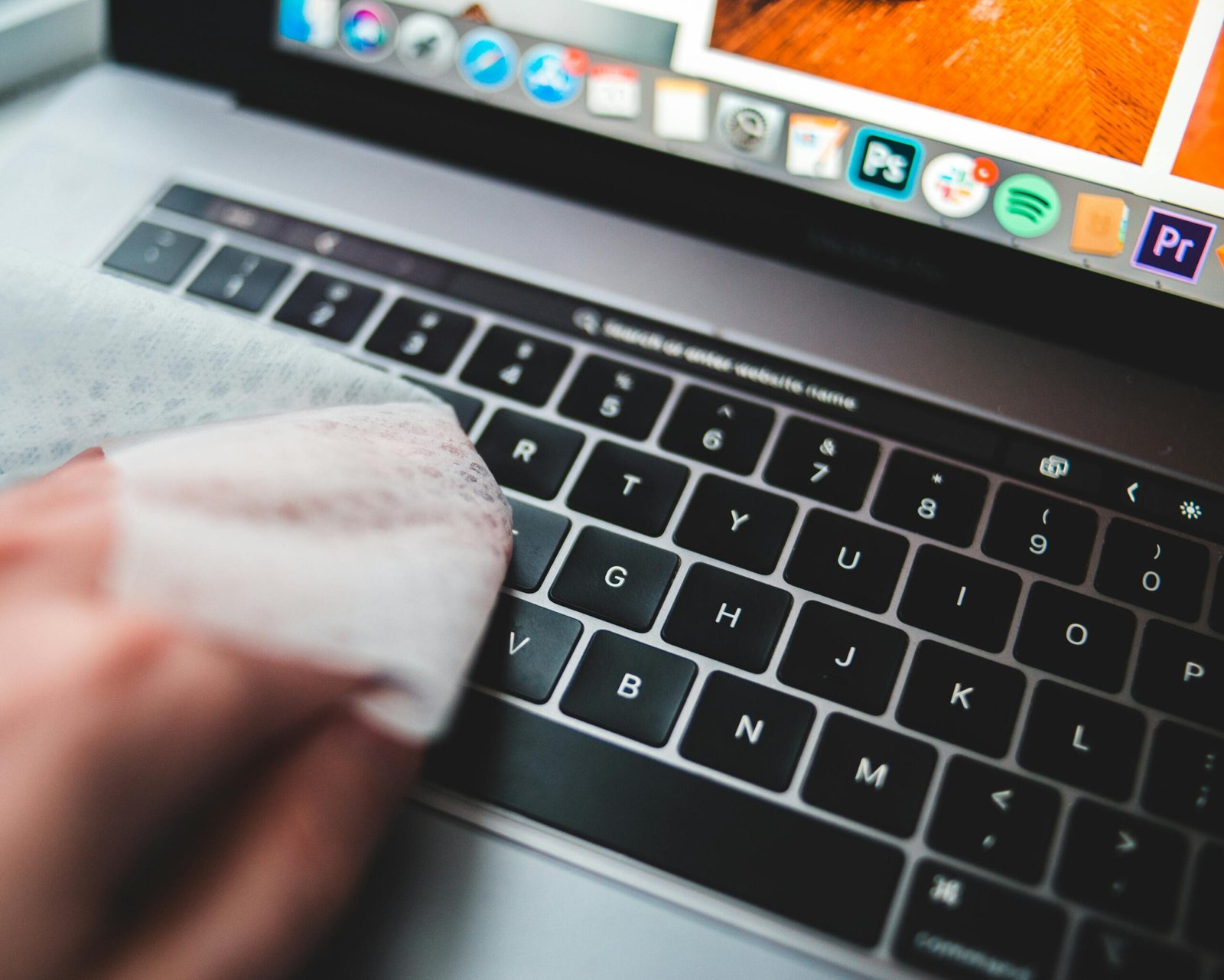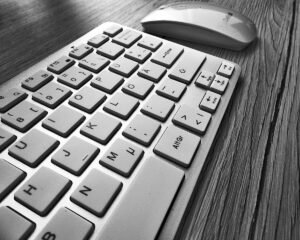A laptop is one of the most essential gadgets we use daily for work, study, and entertainment. However, just like any other device, laptops require proper care and maintenance to ensure they perform efficiently and last longer. In this comprehensive guide, we will dive into what is the proper way to maintain a laptop, offering practical tips and best practices to help you keep your laptop in top shape for years to come.
Why is Laptop Maintenance Important?
Maintaining your laptop is crucial not only for its performance but also for its longevity. Proper maintenance can:
- Enhance performance: Regular care ensures that your laptop runs faster and smoother.
- Prevent costly repairs: Taking preventative steps can avoid unexpected hardware failures that may require expensive repairs.
- Improve lifespan: Proper care helps extend the life of your laptop, ensuring that it remains functional for several years.
Ignoring laptop maintenance can lead to overheating, slow performance, and even hardware failure. By following a simple maintenance routine, you can significantly reduce the likelihood of these problems.
Common Laptop Issues That Can Be Prevented with Proper Maintenance
Many common laptop issues arise due to lack of care. Here are a few problems that the proper way to maintain a laptop can help prevent:
- Slow performance and freezing: Over time, without proper cleaning and software updates, your laptop can become sluggish.
- Overheating: Poor airflow and dust buildup can cause your laptop to overheat, damaging internal components.
- Battery drainage: Not maintaining the battery or charging habits can cause your battery life to deteriorate faster than it should.
- Hardware failure: Laptops that are not regularly cleaned can suffer from damaged keyboards, unresponsive screens, or malfunctioning ports.
By staying on top of regular maintenance, you can avoid these issues and keep your laptop in peak condition.
Also read: Lenovo ThinkPad E15 Review – The Ultimate In-Depth Analysis
Best Practices for Laptop Maintenance

Now that we know why laptop maintenance is essential, let’s explore the proper way to maintain a laptop and ensure it stays in great shape.
1. Regularly Clean the Laptop’s Exterior and Screen
Why It’s Important:
The exterior of your laptop is exposed to dust, dirt, and smudges, which can affect its appearance and functionality. Regularly cleaning your laptop’s exterior and screen is the proper way to maintain a laptop and ensure its performance.
How to Clean:
- Laptop screen: Use a microfiber cloth to gently wipe the screen. Avoid harsh chemicals that can damage the display. A mixture of water and vinegar or a dedicated screen cleaner is usually safe.
- Exterior: Use a damp microfiber cloth to wipe the body of the laptop. Pay attention to the keyboard and trackpad, as these areas can accumulate dust and oil from your fingers.
- Keyboard cleaning: Use compressed air to remove dirt and debris from between the keys. A soft brush or keyboard wipes can also be used for deeper cleaning.
Recommended Tools:
- Microfiber cloth
- Compressed air canister
- Screen cleaner (if needed)
- Soft brush
2. Keep the Laptop Keyboard Clean
Why It’s Important:
The keyboard is one of the most used parts of a laptop, and it can easily become dirty with dust, crumbs, and oils from your fingers. Dirty keyboards can lead to malfunctioning keys or a sticky typing experience.
Cleaning Tips:
- Compressed air: Blowing compressed air between the keys helps to dislodge dust and debris.
- Key cleaning: If needed, gently remove the keys and clean underneath with a damp cloth or cotton swab.
- Regular wiping: Use a microfiber cloth to wipe down the keyboard regularly to keep it free from grime.
3. Manage Storage and Files
Why It’s Important:
A cluttered laptop can slow down its performance. Over time, files, programs, and temporary data can take up valuable space, leading to lagging and crashes. Managing your laptop’s storage is a critical aspect of the proper way to maintain a laptop and ensure its speed and efficiency.
How to Optimize Storage:
- Delete unnecessary files: Periodically go through your downloads, documents, and other folders to delete files you no longer need.
- Uninstall unused programs: If there are applications you haven’t used in a while, uninstall them to free up space.
- Disk cleanup: Use built-in tools like Disk Cleanup on Windows or CleanMyMac for macOS to remove system cache and temporary files.
- External storage: For files that you don’t need immediate access to, consider moving them to an external hard drive or cloud storage.
4. Update Your Software Regularly
Why It’s Important:
Keeping your laptop’s operating system and software up to date is a crucial part of the proper way to maintain a laptop. Updates often include performance enhancements, bug fixes, and security patches that can prevent system errors and ensure your device runs smoothly.
How to Stay Updated:
- Operating system updates: Regularly check for and install updates for your operating system (Windows, macOS, etc.).
- Application updates: Keep all installed applications up to date to ensure they run smoothly and securely.
- Set automatic updates: Enable automatic updates for your system and apps to ensure you never miss an important update.
5. Protect Your Laptop from Viruses and Malware
Why It’s Important:
Malware, viruses, and other cyber threats can harm your laptop and compromise your data. Regular scans and antivirus protection help safeguard your system.
Steps to Secure Your Laptop:
- Install antivirus software: Programs like Windows Defender, Avast, or Norton can help protect your laptop from malware.
- Update antivirus software: Ensure that your antivirus program is always up to date to detect the latest threats.
- Perform regular scans: Run a full system scan at least once a week to detect and remove any threats.
6. Monitor Your Laptop’s Temperature
Why It’s Important:
Laptops tend to overheat when used for extended periods or placed on soft surfaces that obstruct airflow. Overheating can damage internal components and significantly reduce performance, which is why managing temperature is a key part of the proper way to maintain a laptop.
How to Keep Your Laptop Cool:
- Cooling pads: Invest in a cooling pad that helps regulate the temperature of your laptop.
- Proper ventilation: Use your laptop on hard, flat surfaces like desks, not on soft surfaces like beds or couches.
- Environmental factors: Keep your laptop in a well-ventilated, cool area to prevent overheating.
Tools:
- Laptop cooling pads
- Temperature monitoring software (e.g., HWMonitor or Core Temp)
7. Maintain Battery Health
Why It’s Important:
The battery of your laptop is a crucial part of its overall performance. Poor charging habits or neglecting the battery can result in quicker deterioration, which is why following the proper way to maintain a laptop includes adopting good battery care practices.
Best Battery Practices:
- Avoid overcharging: Don’t leave your laptop plugged in all the time. Charge it when it drops to 20-30% and unplug it once it hits 80-90%.
- Battery calibration: Once every few months, allow your battery to discharge completely and then charge it back to 100% to recalibrate it.
- Power-saving settings: Enable power-saving features to extend battery life, such as reducing screen brightness or turning off unused programs.
8. Regularly Back Up Your Data
Why It’s Important:
Backing up your data ensures that even if your laptop malfunctions or you lose your data, you have a copy stored safely elsewhere.
Backup Methods:
- Cloud storage: Use services like Google Drive, OneDrive, or Dropbox to back up files and documents.
- External hard drives: Keep a physical backup on an external drive to store large files or sensitive data.
- Automatic backups: Set up automatic backups to ensure your data is backed up regularly without needing manual intervention.
Additional Tips for Maintaining Your Laptop’s Performance
1. Use a Laptop Cooling Pad or Stand
A laptop cooling pad helps in improving airflow, which is crucial for preventing your laptop from overheating. These pads often come with built-in fans that assist in cooling down your device.
2. Avoid Using Your Laptop on Soft Surfaces
Placing your laptop on soft surfaces like beds or couches can obstruct airflow and cause your laptop to overheat. Always use your laptop on hard, flat surfaces to ensure proper ventilation.
3. Properly Shut Down or Restart Your Laptop
Shutting down your laptop completely or restarting it periodically can help refresh its memory and improve its performance. Avoid just closing the lid, as this doesn’t completely turn off the system.
4. Keep Your Laptop in a Safe Place
Always store your laptop in a secure place to avoid physical damage. Consider using a padded laptop bag or case when transporting it, and avoid leaving it in extreme temperatures or areas with high humidity.
5. Regularly Clean Your Laptop’s Ports and Vents
Dust and debris can accumulate in your laptop’s ports and vents, causing overheating or malfunctioning. Use compressed air to clear the vents and ports regularly.
How Often Should You Maintain Your Laptop?
Maintenance Frequency:
- Cleaning the exterior and screen: Once a week or as needed.
- Software updates: Monthly for operating system updates, weekly for software updates.
- Battery care: Charge your laptop properly every day, and calibrate the battery every 2-3 months.
- Data backup: Backup important data weekly or monthly.
Troubleshooting Common Laptop Problems
1. My Laptop is Overheating—What Should I Do?
Overheating can be caused by blocked vents or excessive usage. Use a cooling pad and clean the vents regularly.
2. My Laptop Battery Drains Quickly—What Can I Do?
Battery drain can be managed by adjusting power settings and maintaining good charging habits. An old battery may need to be replaced.
3. My Laptop is Running Slowly—How Can I Speed It Up?
Running a disk cleanup, defragmenting the hard drive (if applicable), and uninstalling unnecessary programs can improve speed.
4. My Laptop Keyboard Is Not Working—How Do I Fix It?
Check for dirt, restart your laptop, or try updating drivers. If the problem continues, you might want to try replacing the keyboard.
When to Seek Professional Laptop Maintenance Services
If you’re experiencing persistent issues that you can’t fix with regular maintenance, it may be time to seek professional help. A technician can identify hardware or software problems and fix them efficiently.
Final Thoughts
Proper laptop maintenance is essential to ensure its longevity and smooth performance. By following the proper way to maintain a laptop, such as regular cleaning, software updates, and battery care, you can avoid common problems and maximize your device’s lifespan. Start today and keep your laptop running like new!



